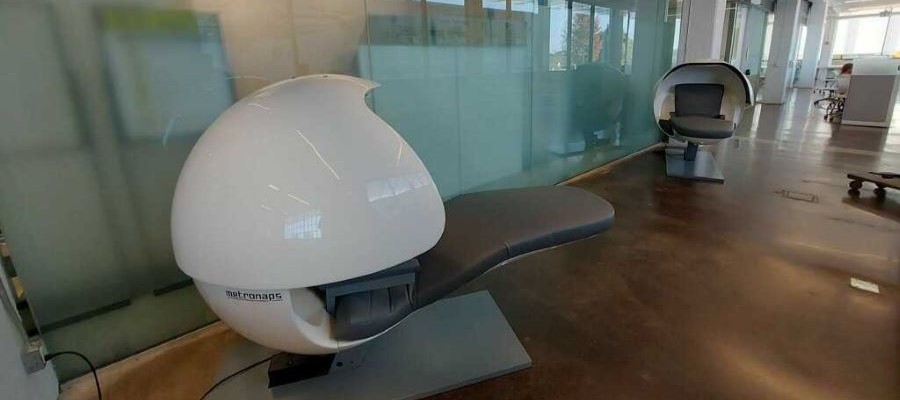
How Sleep may Improve Employee Productivity
A lot of people don’t get enough sleep. In fact, the Centers for Disease Control and Prevention reports that one out of three adults gets less than seven hours of sleep on a work night. A lack of sleep makes it difficult to concentrate and is associated with serious health problems such as obesity and diabetes. But did you know that getting too little sleep may also be hurting your employee productivity?
Sleep in the US
Sleep has greatly declined over the past century. In 1910, for example, Americans slept an average of nine hours a night. Today that number is down to around 6.8 hours per night and people are spending more time in bed during their waking hours than they used to do.
Poor sleep and lack of sleep doesn’t only affect Americans. According to the World Economic Forum, Japan and South Korea clock in at the bottom of the list with people averaging somewhere around 6.3-6.4 hours of sleep per night.
Across the Atlantic, Europeans are doing a little better. People in the Netherlands, Finland, the UK and Belgium reportedly get a little more than 7.5 hours of sleep each night. Down under, Australians sleep pretty well and New Zealanders top the list with close to 7.75 hours of sleep per night.

But is this enough? Experts recommend between 7 to 9 hours per night which means even the top ranked countries for sleep are still sleeping on the lower end of the recommended sleep duration.
The impact of this on our health is not good. A lack of sleep can lead to very serious problems such as obesity, diabetes and even heart disease. But there’s another problem that it creates: a decrease in employees’ productivity at work.
READ ALSO: Napping at Work
Sleep and productivity
Sleep deprivation impacts employee productivity. In fact, the Journal of Applied Psychology reported that those who didn’t get enough sleep made more mistakes, had trouble focusing and were less creative.
The study showed that people who sleep fewer than six hours a night have an attention span equal to someone with ADHD. They also make up to 40 percent more errors in simple tasks when compared to those who got nine hours of sleep the previous night. The loss of productivity caused by lack of sleep also impacts the amount of money that employers lose.
To put it another way, for the US, Japan, UK and Germany, there are a combined 2.2 MILLION working days lost due to lack of sleep. In terms of dollars, we’re talking 659 BILLION dollars in lost in economic output.

How sleeping less affects employee performance
One reason for lack of sleep is the work environment itself. According to researchers who study this issue, many jobs involve working irregular hours or shifts that do not fit into a typical sleeping pattern. This makes it difficult for employees to get enough rest during the day and may cause them problems at night as well. This leads to sleep deprivation, which makes people more prone to mistakes at work, slows their reaction time and reduces their ability to pay attention.
The internet and social media play a large role in the decrease in sleep duration. A recent survey by the American Academy of Sleep Medicine (AASM) reports that 93% of Gen Z (people born between 1997 – 2012) have stayed up last their bedtime because of social media. In another AASM survey, 91% of respondents report losing sleep because they binge-watch a TV show and 75% say they stayed up past their bedtime to shop online.

READ ALSO: Nap Pods at Work (Whitepaper)
How to increase employee productivity
Sleep deprivation can impact your workforce productivity in many ways, but it doesn’t have to be like this! Some simple adjustments to office space and work hours may improve employee productivity by helping team members make up for lost sleep.
The solution is simple: get employees into a regular sleeping pattern that leaves them rested every day. Some employers are already doing this by encouraging employees to nap during the day or flexible hours so workers can set up office space to suit their own needs and maneuver work life balance easier.
Another solution is a later start time for work or school, which would allow employees and students more time in the morning, following a more natural circadian rhythm. Companies with late-night shifts could control shift schedules to ensure employees are not scheduled back to back, ensuring they have adequate time to rest before returning to work.

Summary
To summarize, many employees don’t get enough sleep at night. Sleep deprivation can impact their productivity by making them less attentive and more prone to mistakes. Employers may help increasing employee productivity by allowing for flexible hours or naps during the day, as well as late start times for work or school so that people aren’t getting up before it’s time to wake up.
Remember, time spent napping at work is not time wasted. Rather, it is time invested in gaining higher productivity and better wellbeing for your business as a whole.
